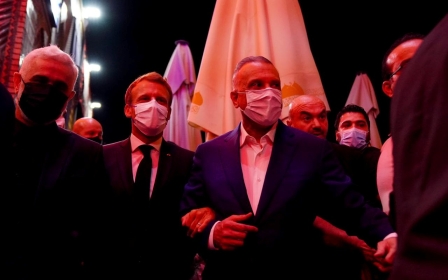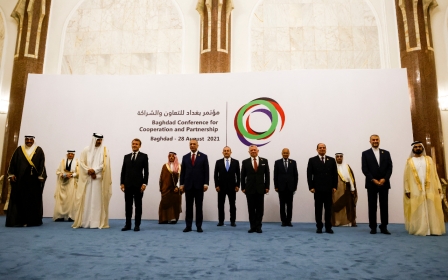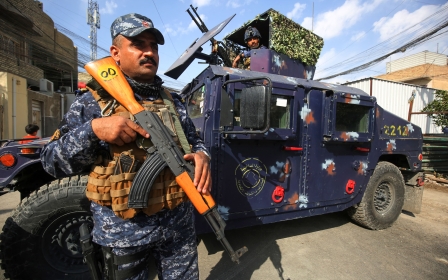Iraq signs $27bn oil, gas and solar deal with France's TotalEnergies
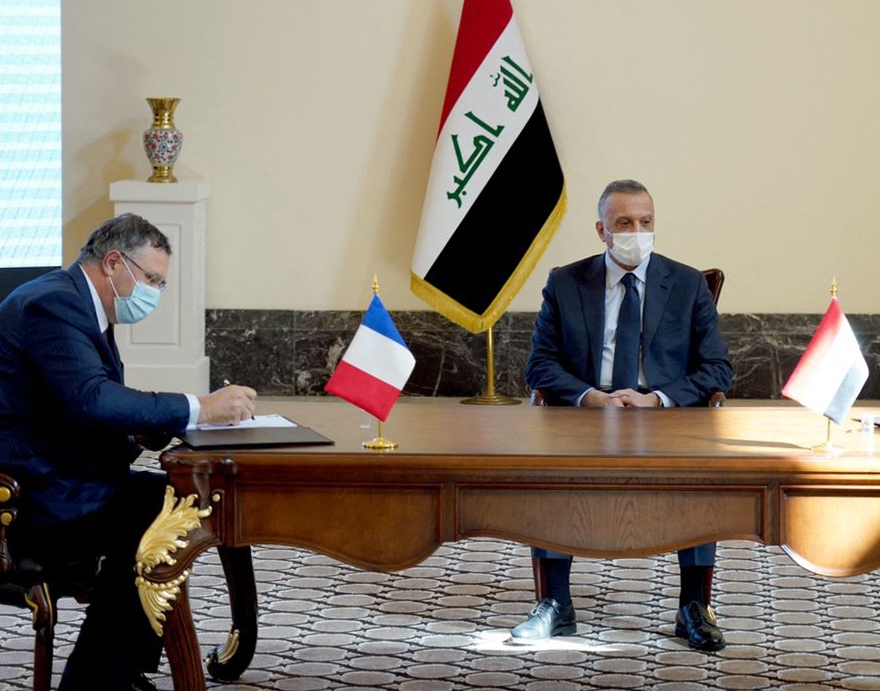
French giant TotalEnergies signed a $27bn contract to invest in oil, gas and solar production in Iraq on Sunday, as the country faces an acute energy crisis.
Oil Minister Ihsan Ismail signed the contract at a Baghdad ceremony with TotalEnergies chief Patrick Pouyanne, which was also attended by Iraqi Prime Minister Mustafa al-Kadhemi.
TotalEnergies did not directly confirm the value or duration of the contract.
But the French oil major plans initially to invest $10bn in infrastructure, the proceeds of which will then allow a second round of investments of $17bn, the officials said.
"This is the largest investment in Iraq by a western company," Ismail said. "Implementing these projects is the challenge we face now."
The planned withdrawal of US troops from Iraq has been seen by France as a chance to extend its influence in the country and establish a launching pad to expand its position in the Middle East.
France's former Total, which has renamed itself TotalEnergies this year to symbolise a diversification into cleaner sources of power, is one of the world's top five energy companies and has had a presence in Iraq since the 1920s.
Despite being the number two producer in Opec, Iraq is experiencing an acute energy crisis and chronic blackouts that have fuelled social discontent.
Officials justify the lack of investment and the dilapidated state of Iraq' energy network by citing falling oil prices, which represent more than 90 percent of state revenue.
The TotalEnergies deal is supposed in part to reduce Iraq's reliance on fossil fuels.
Four projects
Iraq is highly dependent on neighbouring Iran, which supplies a third of its gas and electricity needs.
However, Baghdad currently owes Tehran $6bn for energy already supplied.
The contract inked on Sunday with TotalEnergies covers four projects, an Iraqi oil ministry source told AFP ahead of the signing ceremony.
One of these aims to pipe seawater from the Gulf to southern Iraqi oilfields. Water is used to extract oil from subterranean deposits.
Another is intended to increase production from the Artawi oilfield near the southern port of Basra from 85,000 barrels per day to 210,000 bpd.
A third project will see the construction of a complex to exploit production from the sector's gas fields.
Rather than flaring or burning off the excess, the plan is to recover it for use in electricity generation.
The premier's office said this will "reduce gas imports".
The fourth project will see the installation of a solar farm in Artawi.
The Iraqi source said that ultimately, the solar panels should produce "1,000 megawatts" of electricity, the equivalent of the energy produced by a nuclear reactor.
"Iraq will not pay anything," the source added.
Electricity produced by solar power "costs 45 percent less than that produced by traditional power stations," the Iraqi government said.
French plan
Last month's Baghdad Conference on Partnership and Cooperation, which was attended by several regional leaders and French President Emmanuel Macron, was originally a French project, Iraqi officials told Middle East Eye.
It was “the official gate” through which France entered Iraq to introduce itself as “a partner to the Iraqi government in its concerns and a sponsor of Iraq's regional and international interests,” as one Iraqi official put it.
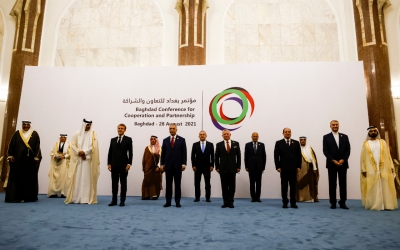
At the conference, Macron said in a televised press conference that France will maintain its presence in Iraq to fight against terrorism, "no matter what choices the Americans make”.
"It is clear that France sees the American retreat as an opportunity to gain political and economic influence in Iraq, after its failure in Lebanon," Elie Abouaoun, director of Middle East and North Africa programmes in the United States Institution of Peace, told MEE.
The TotalEnergies contract was signed after months of negotiations and several visits by Pouyanne.
In January, Ismail had said the relationship with the French company was "developing rapidly".
"Happy to be in Basra where I visited gas and oil fields," Pouyanne also tweeted in January.
"Reducing flaring and increasing gas production is a priority for Iraq as well as for Total. Let's work together!"
Middle East Eye delivers independent and unrivalled coverage and analysis of the Middle East, North Africa and beyond. To learn more about republishing this content and the associated fees, please fill out this form. More about MEE can be found here.


